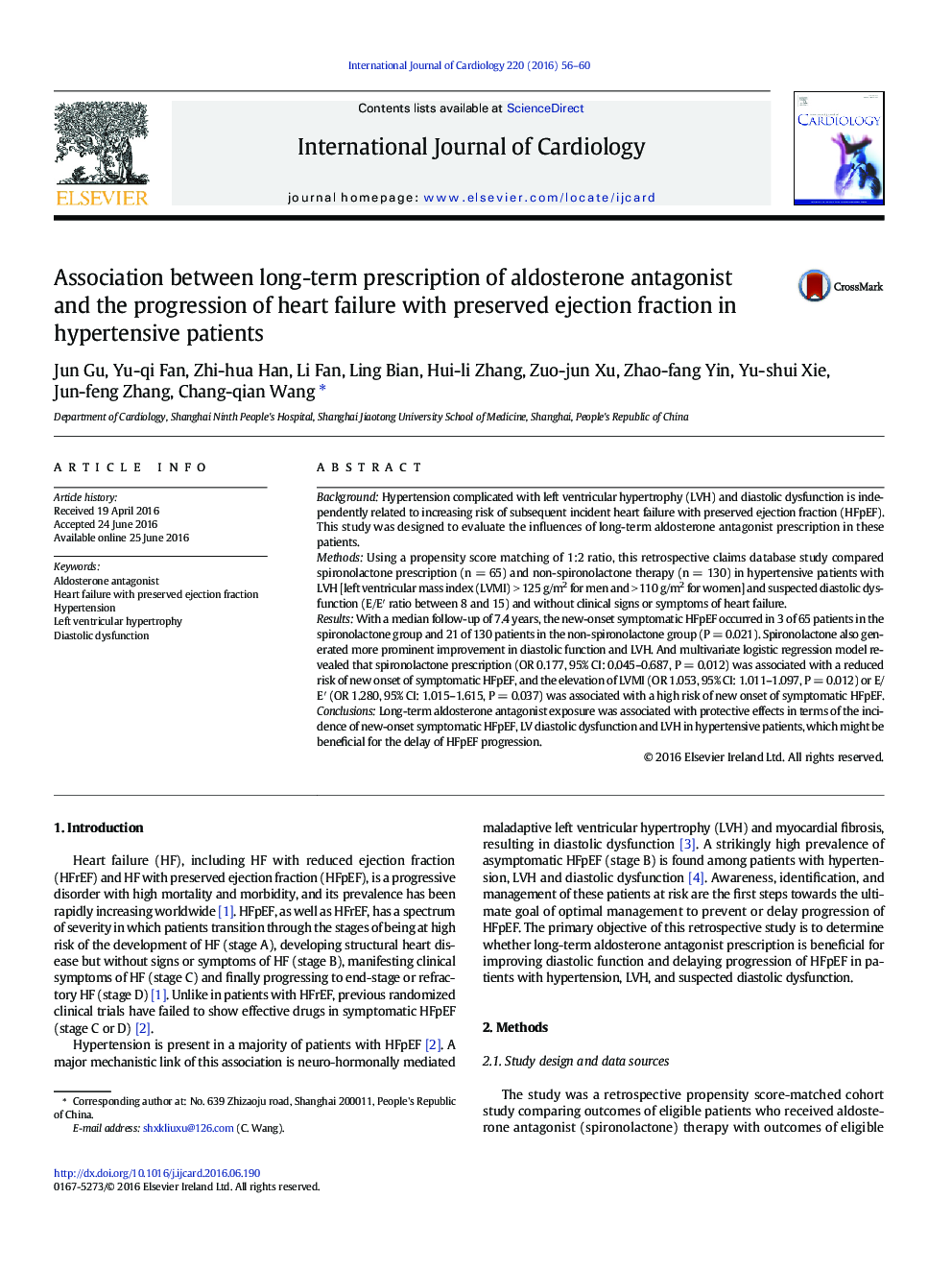| Article ID | Journal | Published Year | Pages | File Type |
|---|---|---|---|---|
| 5963385 | International Journal of Cardiology | 2016 | 5 Pages |
BackgroundHypertension complicated with left ventricular hypertrophy (LVH) and diastolic dysfunction is independently related to increasing risk of subsequent incident heart failure with preserved ejection fraction (HFpEF). This study was designed to evaluate the influences of long-term aldosterone antagonist prescription in these patients.MethodsUsing a propensity score matching of 1:2 ratio, this retrospective claims database study compared spironolactone prescription (n = 65) and non-spironolactone therapy (n = 130) in hypertensive patients with LVH [left ventricular mass index (LVMI) > 125 g/m2 for men and > 110 g/m2 for women] and suspected diastolic dysfunction (E/EⲠratio between 8 and 15) and without clinical signs or symptoms of heart failure.ResultsWith a median follow-up of 7.4 years, the new-onset symptomatic HFpEF occurred in 3 of 65 patients in the spironolactone group and 21 of 130 patients in the non-spironolactone group (P = 0.021). Spironolactone also generated more prominent improvement in diastolic function and LVH. And multivariate logistic regression model revealed that spironolactone prescription (OR 0.177, 95% CI: 0.045-0.687, P = 0.012) was associated with a reduced risk of new onset of symptomatic HFpEF, and the elevation of LVMI (OR 1.053, 95% CI: 1.011-1.097, P = 0.012) or E/EⲠ(OR 1.280, 95% CI: 1.015-1.615, P = 0.037) was associated with a high risk of new onset of symptomatic HFpEF.ConclusionsLong-term aldosterone antagonist exposure was associated with protective effects in terms of the incidence of new-onset symptomatic HFpEF, LV diastolic dysfunction and LVH in hypertensive patients, which might be beneficial for the delay of HFpEF progression.
